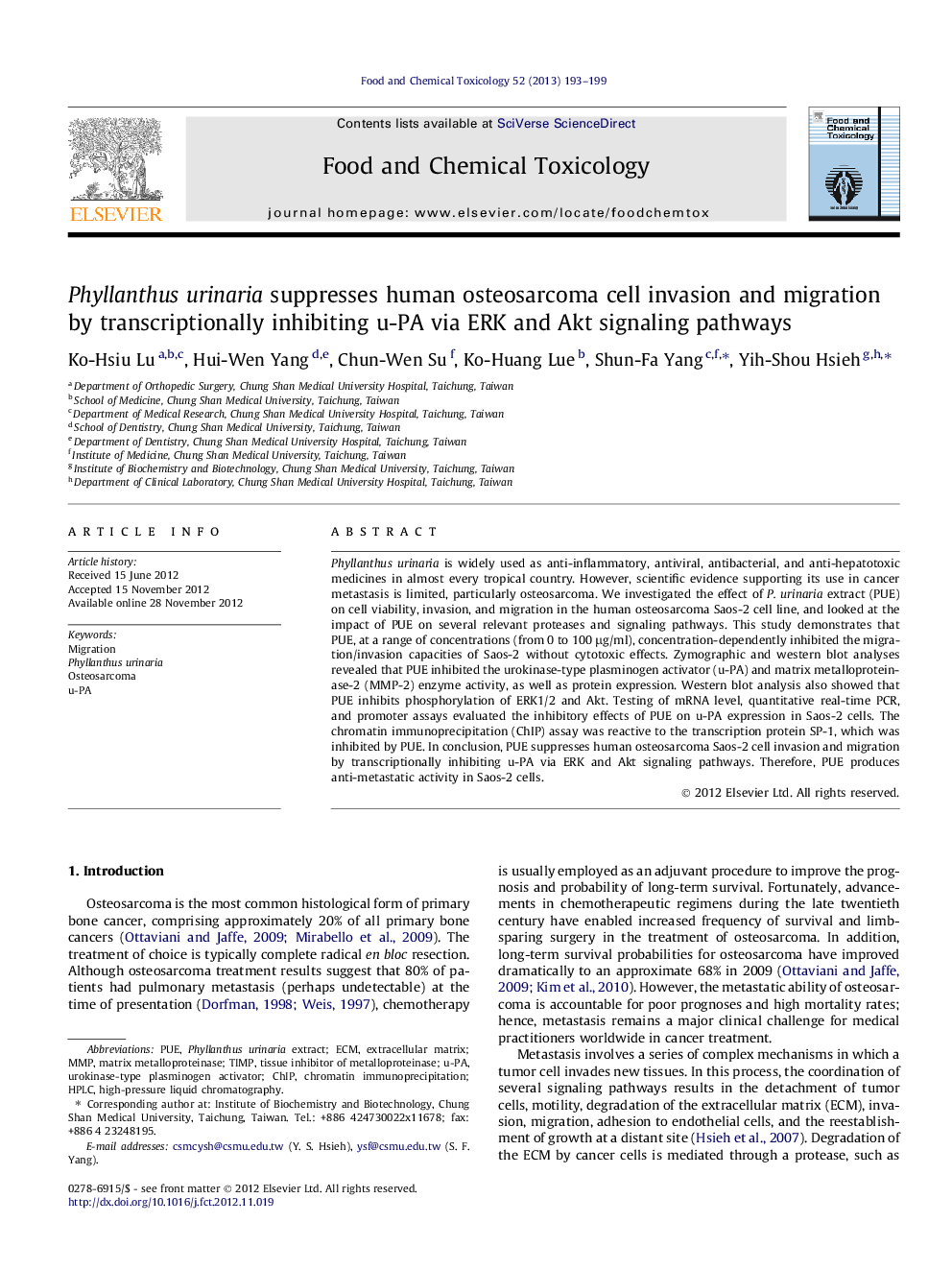| Article ID | Journal | Published Year | Pages | File Type |
|---|---|---|---|---|
| 2585265 | Food and Chemical Toxicology | 2013 | 7 Pages |
Phyllanthus urinaria is widely used as anti-inflammatory, antiviral, antibacterial, and anti-hepatotoxic medicines in almost every tropical country. However, scientific evidence supporting its use in cancer metastasis is limited, particularly osteosarcoma. We investigated the effect of P. urinaria extract (PUE) on cell viability, invasion, and migration in the human osteosarcoma Saos-2 cell line, and looked at the impact of PUE on several relevant proteases and signaling pathways. This study demonstrates that PUE, at a range of concentrations (from 0 to 100 μg/ml), concentration-dependently inhibited the migration/invasion capacities of Saos-2 without cytotoxic effects. Zymographic and western blot analyses revealed that PUE inhibited the urokinase-type plasminogen activator (u-PA) and matrix metalloproteinase-2 (MMP-2) enzyme activity, as well as protein expression. Western blot analysis also showed that PUE inhibits phosphorylation of ERK1/2 and Akt. Testing of mRNA level, quantitative real-time PCR, and promoter assays evaluated the inhibitory effects of PUE on u-PA expression in Saos-2 cells. The chromatin immunoprecipitation (ChIP) assay was reactive to the transcription protein SP-1, which was inhibited by PUE. In conclusion, PUE suppresses human osteosarcoma Saos-2 cell invasion and migration by transcriptionally inhibiting u-PA via ERK and Akt signaling pathways. Therefore, PUE produces anti-metastatic activity in Saos-2 cells.
► PUE is widely used as anti-inflammatory and anti-hepatotoxic medicines. ► PUE concentration-dependently inhibited migration/invasion capacities of Saos-2. ► PUE inhibits phosphorylation of ERK1/2 and Akt. ► PUE inhibits the binding activities of the transcription factors SP-1.
